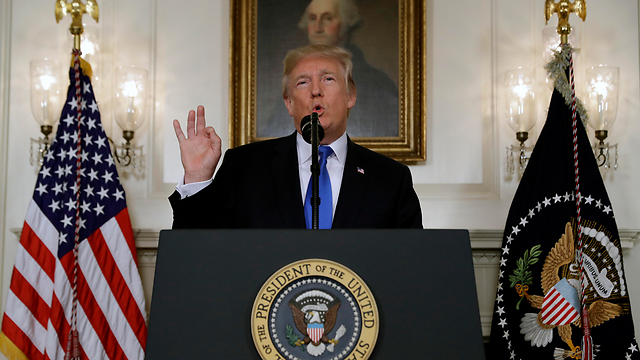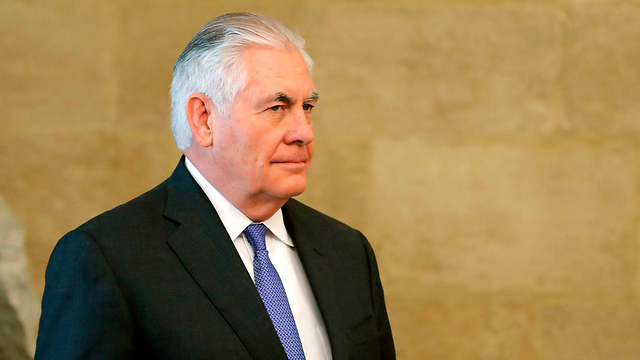
Trump said at the end of last year he would waive nuclear sanctions against Iran for the last time to give Washington and its European allies a chance to fix the "terrible flaws" of the 2015 nuclear deal, signed under his predecessor Barack Obama.
Iran has repeatedly rejected the ultimatum to fix what Trump has repeatedly described as “the worst deal,” saying it will not accept any changes to it.
Finding themselves compelled to take action by May 12 in a bid to cement America’s presence in a deal, the European leaders have signalled a willingness to revisit the issue on condition that Trump provides a guarantee he will honor any appendages to the deal and not rebuff it at a later date on other grounds.
Trump intends to reiterate his warning next month during the trans-Atlantic talks in Berlin, declaring that the US will remove its signature from the deal unless the new administration’s grievances are addressed and “flaws” are rectified.
According to the NYT report, a list of talking points circulated by US Secretary of State Rex Tillerson among American diplomats in Europe ahead of the talks demands that sanctions are no longer suspended in the asbsence of progress on the deal.
“In the absence of a clear commitment from your side to address these issues, the United States will not again waive sanctions in order to stay in the Iran nuclear deal,” the document warns.
The report also claims that Tillerson’s talking points called upon the Europeans to consent to three fundamental changes in the deal: “a commitment to renegotiate limits on missile testing by Iran; an assurance that inspectors have unfettered access to Iranian military bases; and an extension of the deal’s expiration dates to prevent Iran from resuming the production of nuclear fuel long after the current restrictions expire in 2030.”
In response, the European diplomats expressed willingness to revisit the issue of missiles inspections but could not immediately commit to altering the agreement’s expiration date, insisting that to do so would constitute a breach of the deal, not merely with Iran, but also with Russia and China who also inked it. Such a violation, they argue, would only relinquish any control over Iran and risk catalyzing nuclear proliferation.
Nevertheless, a green light given by European leaders and the US on any amendments or an entirely overhauled agreement could be given a red by China and Russia, in addition to the Iranians, who have made repeated public declarations defying Trump.
Trump is required by law to decide every 120 days whether to extend the suspension of US economic sanctions against Iran, which Washington is obligated to lift according to the terms of the deal. Reimposing the sanctions would likely result in the complete undoing of the agreement.
Last September, Iran said it had successfully tested a new medium-range missile in defiance of warnings from Washington that it was ready to ditch the nuclear deal over the issue.
In what was interpreted as a provocation to Trump, in January of this year, Iran also carried out a test launch of another medium-range ballistic missile which exploded after 630 miles, a US official said.
The official, speaking on condition of anonymity, said the test launch was carried out from a site near Semnan.
Despite Trump’s anger, Europeans have expressed reluctance to address Iran’s intercontinental ballistic missile development and testing, since the issue is not part of the deal.
The State Department, however, has emphasized that the missile and nuclear program are inextricably linked, leading Tillerson to incorporate into his talking points that “Iran’s development and testing of missiles should be subject to severe sanctions.”


















